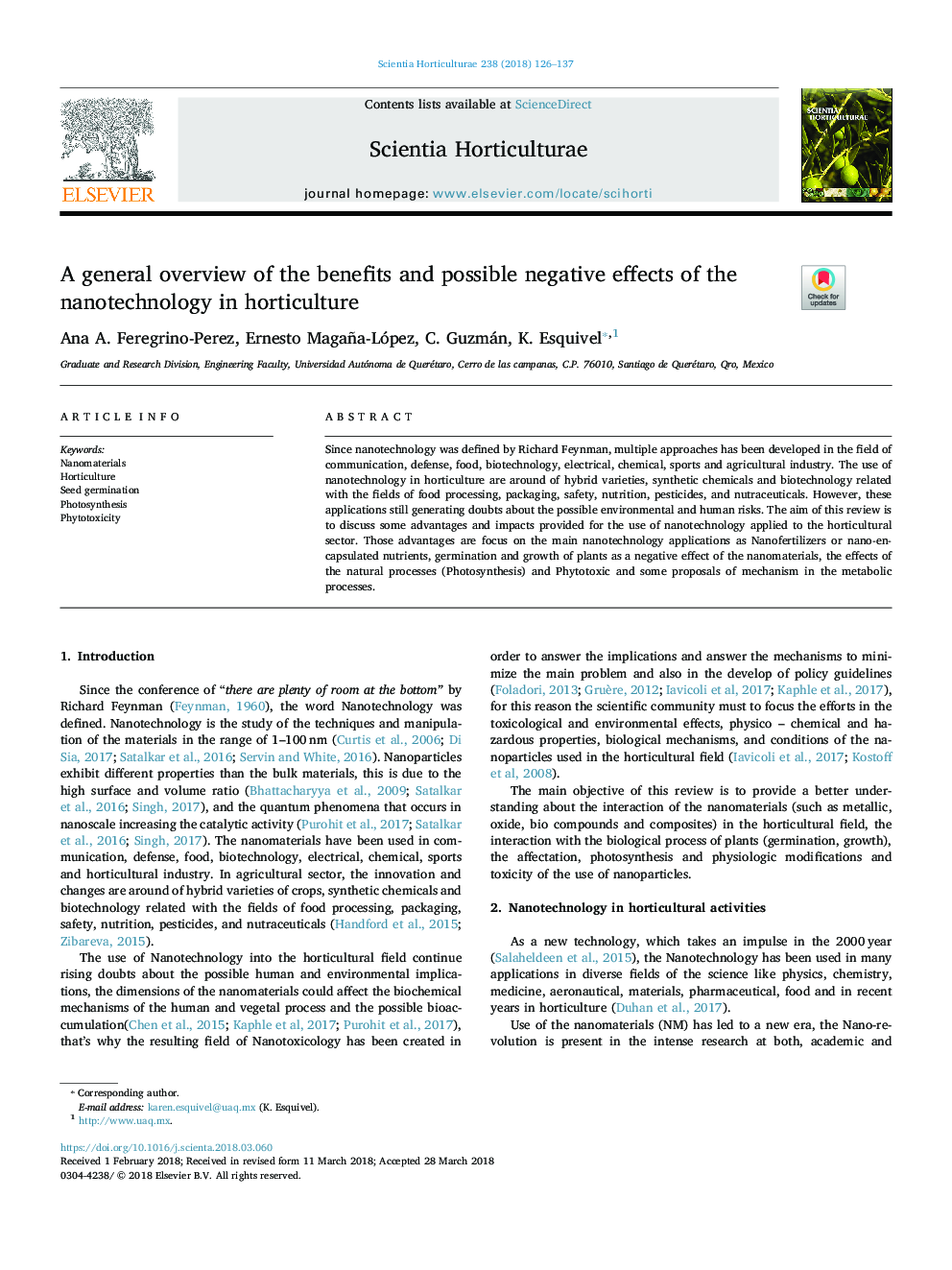| Article ID | Journal | Published Year | Pages | File Type |
|---|---|---|---|---|
| 8892502 | Scientia Horticulturae | 2018 | 12 Pages |
Abstract
Since nanotechnology was defined by Richard Feynman, multiple approaches has been developed in the field of communication, defense, food, biotechnology, electrical, chemical, sports and agricultural industry. The use of nanotechnology in horticulture are around of hybrid varieties, synthetic chemicals and biotechnology related with the fields of food processing, packaging, safety, nutrition, pesticides, and nutraceuticals. However, these applications still generating doubts about the possible environmental and human risks. The aim of this review is to discuss some advantages and impacts provided for the use of nanotechnology applied to the horticultural sector. Those advantages are focus on the main nanotechnology applications as Nanofertilizers or nano-encapsulated nutrients, germination and growth of plants as a negative effect of the nanomaterials, the effects of the natural processes (Photosynthesis) and Phytotoxic and some proposals of mechanism in the metabolic processes.
Related Topics
Life Sciences
Agricultural and Biological Sciences
Horticulture
Authors
Ana A. Feregrino-Perez, Ernesto Magaña-López, C. Guzmán, K. Esquivel,
